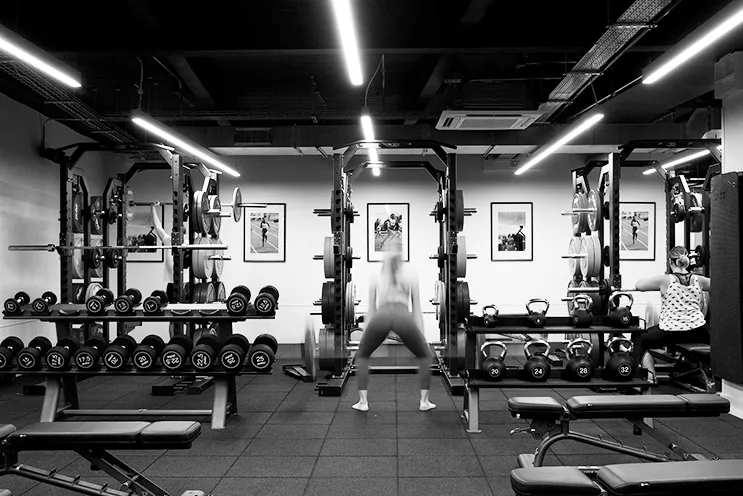The LGBTQ+ Circuits offered by King’s Sport hope to fight against these statistics, encouraging LGBTQ+ students to be active in a safe environment.
Roar
04 November 2018
Roar: LGBTQ+ Circuits Provide Community for Marginalised Students
Zoe Kaplan
The LGBTQ+ Community is highly unrepresented in sport. King's Sport is hoping to help change that.

Sport is known for its benefits to physical health – if you want to increase your fitness, endurance, or shape up that summer (or all year!) body – the gym might be the first place you think to hit in your journey to physical excellence. Yet recent studies have shown fitness isn’t all about the body; sport and working out can have positive effects on your mental health and overall wellbeing as well.
For many, this is an exciting discovery; why not kill two birds with one stone? Working out seems as easy as grabbing a pair of sneakers and hitting the road or scrimmaging with friends on the weekends. Yet this accessibility doesn’t apply to everyone. The cultures that come with sport and working out can create toxic environments, ones that aren’t always welcoming to members of marginalized groups.
Members of the LGBTQ+ community are highly underrepresented in sport. The list of LGBTQ+ professional athletes is far from extensive; media representation is scare, if applicable.
LGBTQ+ individuals are not only underrepresented, but also actively discriminated against in sport. A 2013 study from Out on the Fields found that homophobic language was highly prevalent within sport. In a group where 80% participants identified as heterosexual, homophobic banter was used by over a third of the group in a sport setting.
This discrimination leads to less participation in sport and physical activities, barring many already marginalized individuals the opportunity to improve not only their physical fitness, but also their mental health. According to 2016 research from the National LGB&T Partnership, 55 percent of LGBT men were not active enough to maintain good health, an incidence over 20 percent higher than men in the general population. The statics were closer for women regardless of sexuality, yet 56 percent LGBT women still were not active enough to maintain good health. Those identifying outside of the gender binary had the highest incidence of inactiveness at 64 percent.
Ruadhan Jenkins, a Health and Fitness Coach of King’s Sport as well as Directorate of Estates and Facilities and King’s, started the circuits earlier this year. Jenkins originally worked with an all LGBTQ+ hockey team and wanted to bring a similar inclusive opportunity to King’s.
“It’s nice to be able workout with people who are like you,” Jenkins said. “It’s very different being around people who you know are LGBTQ or an ally instead of going into a gym and potentially being stigmatized because of who you are.”
The program runs for 45 minutes the first Tuesday of every month at the Waterloo Gym. After some introductions and a quick warm-up, participating students rotate stations around the studio, using various types of equipment. The circuits aim to work numerous parts of the body to get a complete, high-intensity workout.

The sessions run at the Waterloo Gym. (*edit: in 2019, the sessions will run at Strand Gym)
“It’s adaptable for people who have done the gym before and people who are brand new and haven’t done anything in the gym,” Jenkins said. “We want to make people feel at ease…
it’s nice to have that inclusive atmosphere.”
Although the program is still relatively new, it’s quickly gained popularity. Through the use of the King’s LGBTQ+ network, King’s Sport has reached students from other London schools – specifically LSE and UCL – and has welcomed them to previous circuits events.
Jenkins believes bringing students together, regardless of school or physical ability, creates a community in the circuits that LGBTQ+ individuals interested in fitness might not have had access to before.
“Mental health in the LGBTQ community is known to be poor, to say the least. So getting people active, getting them into the gym, giving them a sense of community within the gym will help them, hopefully, to be able to come into the gym by themselves and feel comfortable here instead of feeling a bit of an outsider,” she said.
The next circuits will run on Tuesday, November 6 from 17:30-18:15 in the King’s Sport Waterloo Gym. Registration is available online through the KCL website; all students who participate have full access to the gym after the circuits, regardless of membership status.
Jenkins encourages students of all fitness levels and interests to register, meet their community, and get some support.
“It’s not a serious class – come and get to know people and get to know the gym a little bit,” she said. “It’s a really fun atmosphere.”
